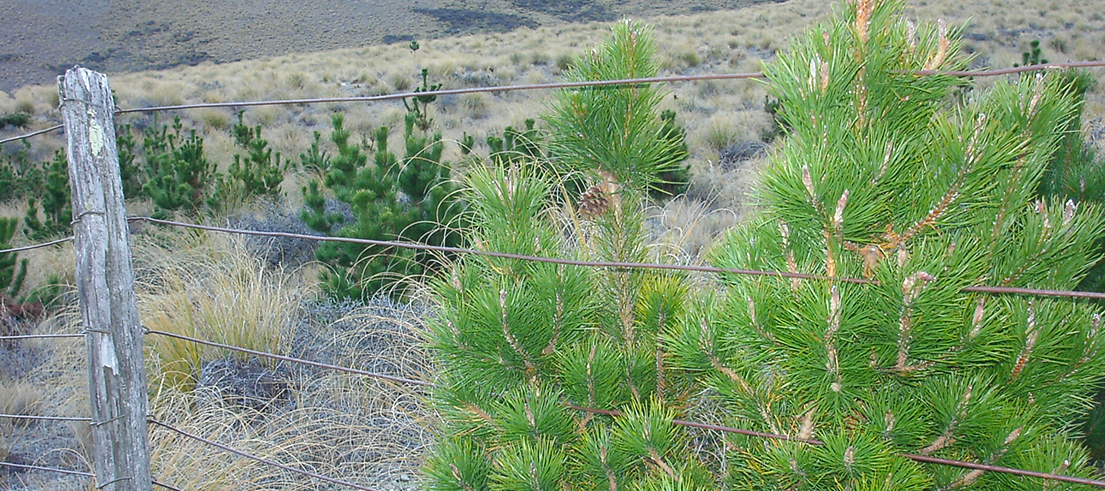
New wilding pines projects support Canterbury's recovery
Wilding pine projects in Canterbury are to benefit from $2 million in government funding for the National Wilding Conifer Control Programme. Three new projects have been announced, to both tackle the problem of wilding pines and employ people hardest hit by the economic fallout of Covid-19.
The funding for the projects, managed by Environment Canterbury, was announced this week by Minister for Biosecurity Damien O’Connor and Minister of Conservation Eugenie Sage.
"More than a quarter of New Zealand is at risk from wilding pines, including some of our most iconic landscapes. We've brought forward control projects in Northland and Canterbury, so we can provide work for people as their sectors recover. Accelerating these projects will remove major seed sources, preventing more infestations," said O’Connor.
"Wilding pines are a $4.6 billion threat to our farmland, waterways and ecosystems. The cost of wilding control increases 30 percent year on year. By going hard and going early we can reduce the total cost of controlling these infestations."
Serious biosecurity threat
Funding for a total of 55 projects throughout New Zealand – including the wilding pine control projects in Kaitāia, Dargaville, Arthur's Pass, Ōhau and Tekapō – will come from the government's $100 million regional support package.
Graham Sullivan, our biosecurity regional leader, describes the importance of both the wilding pines work and the government support.
"Canterbury is badly affected by the spread of wilding pines throughout alpine catchments and foothills; currently, they represent our most serious pest threat. We are very grateful to receive this extra funding which will allow us to both expand our control programme and provide assistance to a sector of the community that has been significantly impacted by the Covid-19 lockdown."
O'Connor said this is a win for New Zealand’s biosecurity and win for our regional recovery.
Employment opportunity
The three projects in Canterbury will provide jobs for around 50 people, with work for around three months in locations near where workers are available.
Sullivan points out that most of those hired previously worked within the hard-hit tourism sector.
"We have targeted people working in the tourism industry, such as mountain guides, helicopter pilots and crew, and the hospitality sector who have all lost their jobs. These people are an important part of our rural community and we want to assist them to stay in the area."
O’Connor adds that the projects will also stimulate economic activity for the wide range of businesses involved in delivering wilding control.
Project details
In Canterbury work will focus on removing wilding pine infestations in the Craigieburn Forest Park and the Mackenzie Basin, protecting both farmland and conservation land in the area.
Craigieburn
Wilding pine issues in Arthur's Pass can be traced back to trees planted in the Craigieburn Range for erosion control in the 1950s and 60s. Wildings have since spread and taken over large tracts of valuable conservation land and productive land. These are home to indigenous subalpine herb fields and various invertebrate species.
Mackenzie
There are two projects in the Mackenzie basin - Ōhau and Tekapō. Trees were planted from the 1950s for erosion control, shelter and beautification. A particular threat in the area is from Pinus contorta, an Unwanted Organism under the Biosecurity Act 1993 and a declared pest in Canterbury’s Regional Pest Management Plan. Contorta has spread from initial plantings infesting the landscape in the Mackenzie basin and upper Waitaki valley, including unique environments and the open and tussock-clad slopes such as the Ben- Ōhau Range.
